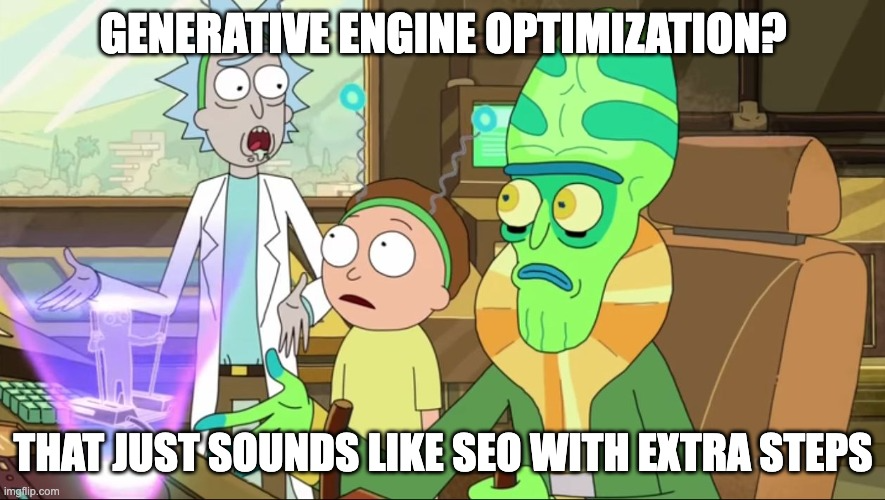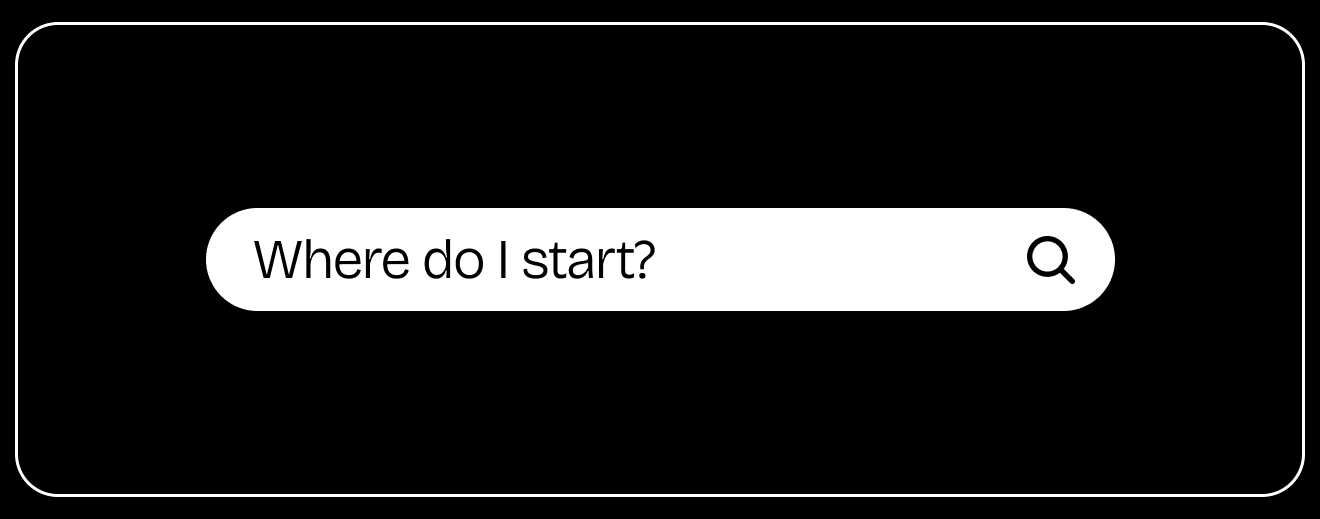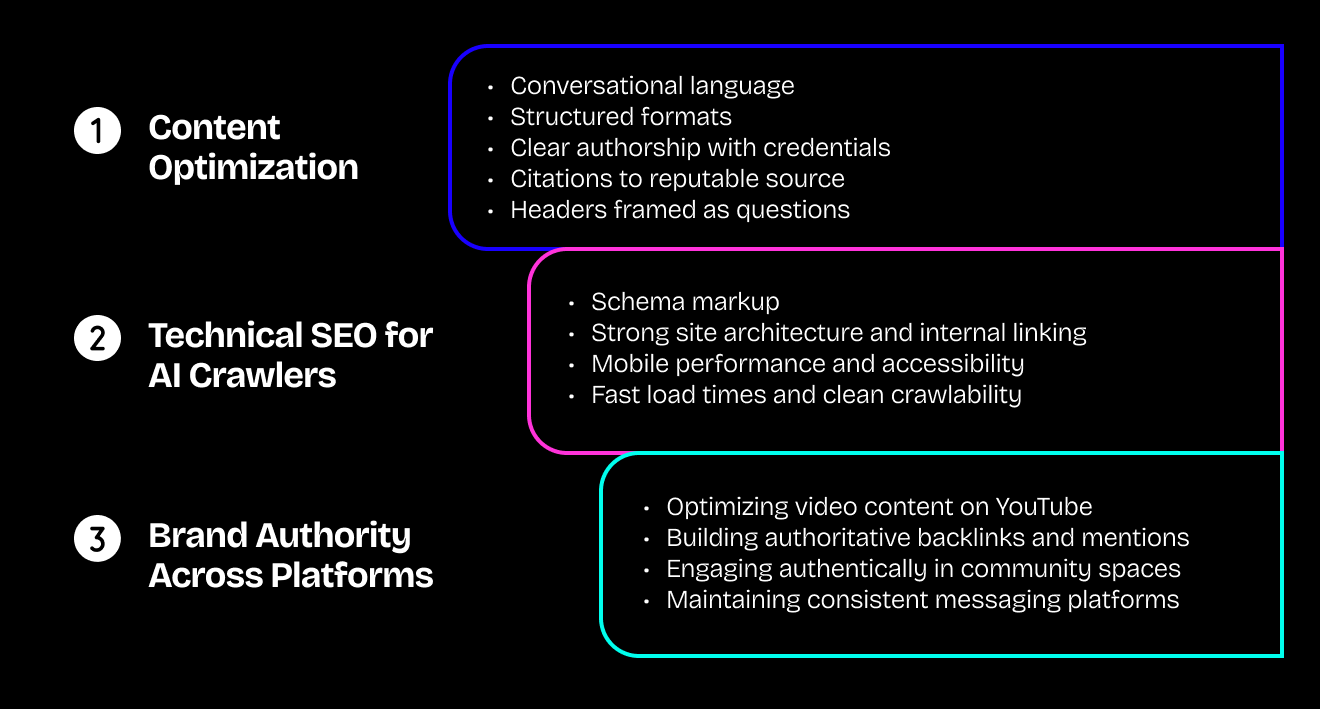Related Articles


.png)
For the past two decades, getting to page one of Google has been the holy grail of digital marketing. But here's the thing: the game just changed, and most brands are still playing by the old rules.
Generative Engine Optimization (GEO) is the practice of optimizing your content to appear in AI-generated answers from tools like ChatGPT, Google AI Overviews, Perplexity, and Claude. If you're not thinking about how these AI systems talk about your brand, you're already invisible to a massive chunk of your audience.
When I first started researching GEO, I went down a rabbit hole that genuinely freaked me out. Every article I read painted this picture of the marketing apocalypse: "Everything you know about SEO is obsolete!" "The entire landscape of optimization has been shaken up!" "AI is completely changing the game!"
I spent weeks convinced we'd need to throw out our entire playbook and start from scratch.
Then I actually dug into it. And here's what I found:

Real Talk? GEO is just SEO with extra steps. The fundamentals haven't changed. What's changed is where your content shows up and how it gets surfaced. And yeah, there are some new tactics and tools you need to add to your arsenal. But it's not a revolution. It's an evolution.
Let me show you what I mean.

Users are getting their answers without ever clicking through to your website. Recent studies from Pew Research and Ahrefs found that in searches featuring AI-generated summaries, users clicked through to actual websites in only 8% of visits, compared to 15% for traditional search results.
That's nearly a 50% drop in click-through rates... which might actually be a good thing.
When ChatGPT cites your brand as an authoritative source, or when Google's AI Overview quotes your content, you're not just getting traffic. You're becoming part of the answer itself. You're building trust at scale. And in a world where attention is the scarcest resource, that's worth more than a website visit.
Much of what you've been doing for SEO still matters. High-ranking pages in organic search results are still more likely to be cited by AI. Surfer SEO found that roughly 52% of sources cited by Google AI also sit in the top 10 results, while Ahrefs reported an even higher correlation at 76%.
The core principles are the same: create authoritative content, build domain authority, optimize your technical infrastructure, earn quality backlinks.
But there are some fundamental shifts happening that add new layers to the strategy:
AI has a favorite hangout, and it's Reddit. While traditional SEO has always valued authoritative domains, AI systems have developed a particular love for community-driven content. Research from Search Engine Roundtable found that ChatGPT relies most heavily on Wikipedia (47.9% of citations), while Google AI Overviews frequently cite Reddit (21%), and Perplexity overwhelmingly favors Reddit (46.7%) as its top source.
Translation: If you're not part of the conversation in community spaces, you're missing out on a huge visibility opportunity. This is the "extra steps" part.
Query fanout multiplies your opportunities. When you ask an AI a question, it doesn't just search for that exact phrase. It generates and runs 2-5 background queries behind the scenes. A search for "best project management software" might fan out into "top PM tools for remote teams," "Asana vs Monday.com," and "project management software with API integrations."
The simple version: semantic richness matters more than ever. You're not optimizing for one keyword anymore. You're optimizing for entire concept clusters. (Sound familiar? That's because it's basically what we've been doing with semantic SEO for years.)
Your brand narrative is being written whether you like it or not. What AI says about your brand is just as important as whether it mentions you at all. AI systems are actively shaping brand perception, and if you're not monitoring and influencing that narrative, you're letting algorithms tell your story for you.
Worth watching: how AI describes your competitors. Because that's the context your brand is being evaluated against.
Here's what I've learned from implementing this for our clients. GEO operates at three levels, and you need all three to win:

EEAT (Expertise, Experience, Authority, and Trust) has always been important for SEO, but it's absolutely essential for GEO. AI systems are trained to identify and prioritize authoritative sources.
The thing often missed is this: AI doesn't just want facts. It wants context, perspective, and proof that a real human with real expertise wrote the content. That means:
One study found that 78% of AI overviews contained lists. AI systems love structured, scannable content because it's easier to parse and present to users.
None of this is new. We've been telling clients to do this for years. The difference is that now it's not just nice-to-have. It's essential.
Technical SEO health matters more than ever. This is the unsexy infrastructure work that makes everything else possible:
Here's something most people miss: you need to set up Bing Webmaster Tools. Why? Because Bing powers ChatGPT, Copilot, and a whole ecosystem of AI search tools. If you're not indexed properly in Bing, you're invisible to a massive segment of AI-driven search.
This is one of those "extra steps" I mentioned. It's not complicated, but it's new infrastructure you need to monitor.
Your website is only one piece of the puzzle. AI pulls signals from across the web to form its understanding of your brand. Think of it like this: every mention, every citation, every community post is a data point that shapes how AI sees you.
That means:
This is about showing up consistently as a credible, helpful voice across the entire internet, not just on your own domain.
Again, not revolutionary. Just a broader definition of where "optimization" needs to happen.
Traditional metrics still matter. Track your keyword rankings, domain authority, and organic traffic. But you also need new metrics that actually tell you how AI sees your brand:
Tools like SEMrush and Surfer SEO have started rolling out AI-specific tracking features. The technology is still early and a bit clunky, but it's evolving quickly.
This is probably the biggest "extra step." You need new tools and new dashboards to track a new set of metrics. But the underlying goal is the same: understand your visibility and optimize for it.
I've been tracking how different brands and industries surface in AI results, and the patterns are striking. High authority scores correlate strongly with AI visibility, but it's not a perfect relationship.
Some brands with modest traditional SEO metrics are punching way above their weight in conversational AI because they've cultivated strong community presence or have exceptionally clear, well-structured content.
The inverse is also true. I've seen established brands with strong domain authority that barely register in ChatGPT or Perplexity because their content isn't optimized for how AI systems extract and present information. They're winning at yesterday's game while losing at today's.
The good news? If you've been doing solid SEO work, you're already 70% of the way there. The other 30% is understanding these new distribution channels and optimizing for them.
GEO isn't replacing SEO. It's expanding the playing field. The brands that will win in this new landscape are the ones that understand both games and play them simultaneously.
Start by auditing how AI currently describes your brand. Run searches in ChatGPT, Claude, Perplexity, and Google (with AI Overviews enabled). See what they say. See who they cite. Then ask yourself: is this the narrative you want? Are you even part of the conversation?
If not, it's time to build a GEO strategy. And if you're already doing good SEO work, you're closer than you think.
The rules changed. We're helping brands rewrite them.
Want to talk about optimizing your brand for AI-driven search? Let's do it.
Build the future of Web3 with people who get you. No suits required. Memes encouraged.